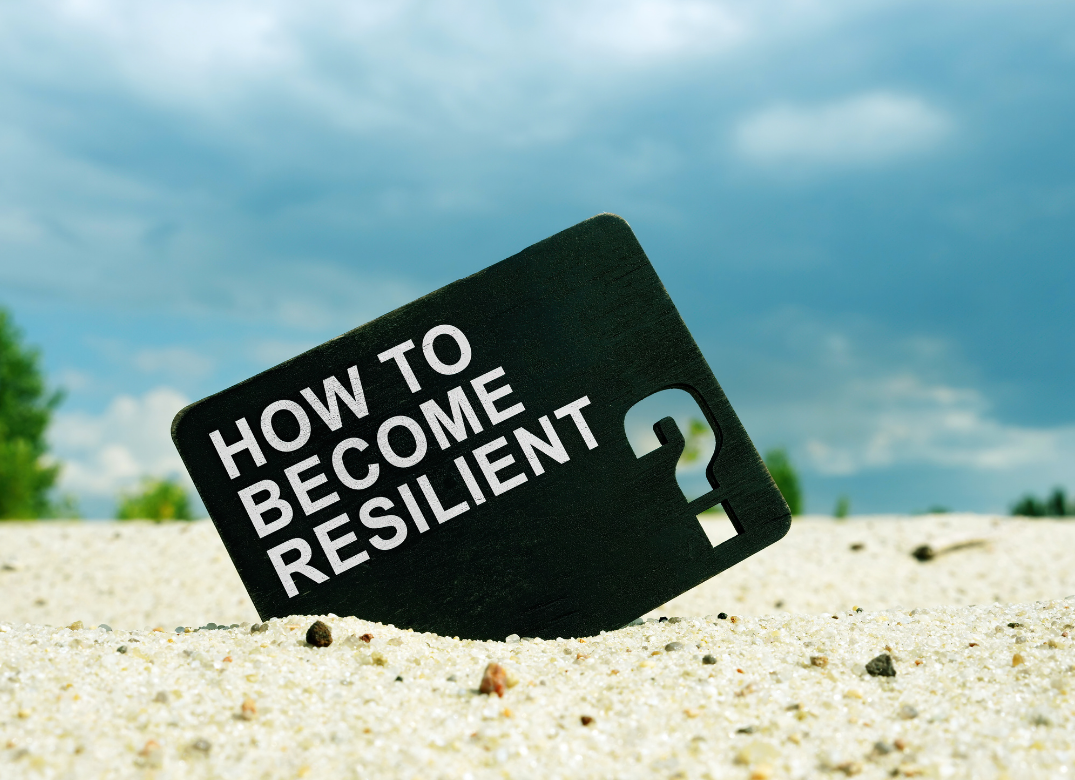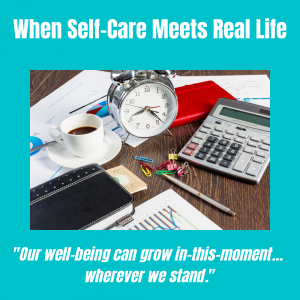
If the last year and a half has taught us anything, it’s the fact that a spirit of buoyancy can truly help us adapt and cope with adversity and distress.
History continues to show us the seemingly miraculous power of resilience. And by building up more resilience within yourself, you can tap into a great source of hope. If you’re looking for proof, think of the folks you know who say they have experienced emotional growth coming out of a trying circumstance.
Of course, no one is the same. And the experts say genetics can play a role, so if someone’s pluck appears to come more naturally to them, it may literally be true. But there’s no doubt that you can also practice resilience skills to build them further.
Practice Extreme Acceptance
Whether it’s a pandemic, or a boss with borderline personality disorder, the obvious thing to remember is that it’s out of your control. You can’t wish it way. So it’s important to accept a current situation for what it is (and what it isn’t). Every time you come to grips with an uncertainty beyond your control you’re building more “resilience muscle” which makes your distress tolerance even stronger.
Embrace Genuine Optimism
This concept is rooted in the ancient art of focusing only on what is truly solvable. Think of it as the ability to identify challenges and overcoming them with practical solutions. In the worst days of the pandemic, we couldn’t stop increases in infections on our own (unsolvable), but we could take personal action to lessen negative impact by washing our hands, social distancing and taking some meetings virtually (genuine optimism).
Accentuate the Positive Thoughts
At various times, we all find it difficult to separate our thoughts from our feelings. It’s called being human. But when negative thoughts begin to overwhelm us, we can call in a mental carpenter and “re-frame” those negative thought patterns. For instance, instead of telling yourself that “my life will never be the same,” after a relationship ends, you can “re-frame” that notion to “maybe something positive can come from this, such as becoming a better person or meeting new people.”
Creative Problem Solving
When an immediate concern comes along, thinking creatively about it can help manage an interruption in routine. Scores of college students were denied the ability to socialize with friends in person over the last year. So they punted, and figured out how to host parties and game nights over Zoom. Some of the biggest touring musical acts discovered how to stream live “concerts” by invitation only. And they even took advantage of spending less time traveling by writing new songs.
Being Present Is a Gift
If you’ve been practicing self-care for your own wellbeing, then you already know you’re better prepared to be there for others. Seek your family, friends, and neighbors out and offer empathetic and compassionate support for them in times of trial. It’s a wonderful way to promote understanding and coping for yourself AND the person receiving your support. The University of Maryland’s research on the 8 Dimensions of Wellness cites caring about others, and letting others care about you, as a hallmark of Emotional Wellness.
Contributing to your community by helping people through volunteering your time and energy is another way to be there for others. There are so many of our cherished elderly feeling the sting of isolation, for example. Build your resilience while honing your ability to see the positive by connecting with an elder. If not in person, make a phone call or write a letter. Unified Caring Association (UCA) is a proud sponsor of the “Letters of Love” program, from the nonprofit Love for Our Elders organization. To help spread love and care they collect cards and letters written by volunteers and mail them to senior communities across the globe. A caring way to help perhaps the most resilient generation of all.
Put Your Mind to It
The key to building resilience is in all the previous work you’ve done practicing positivity leading up to this present moment. It’s simply a matter of will. You can choose, today, right now, to create a mindset for yourself filled with joy, gratitude, serenity, hope, amusement, and above all service – which you can provide, even in the most adverse circumstances.
To begin, consider what you are grateful for and write it down. Think about what gives you a sense of purpose. And then give that love freely to those around you.
The result will be a noticeable positive change that occurs despite whatever challenges life is bringing your way at the moment.

All Failure is a Failure to Adapt
There are many lessons to be learned from our collective experiences throughout the last 18 months, but one stands out among them all: transformation is happening whether you’re ready for it or not. When there’s urgency and when people are given the room to realize and exceed their own capacity to contribute to a shared mission – we can adapt and innovate.
Practicing resilience skills in the face of a crisis (large or small) can manifest itself in many ways, including an increased appreciation for life, strengthened relationships and even a boosted sense of personal strength.
Achieving this kind of growth may take time, tremendous will power and determination — but you should never underestimate yourself. Because you are capable of more than you can ever imagine.
By Mark Smith, contributing author
We are all working our way through a changed world as a result of the coronavirus pandemic. We may no longer be quarantined or under stay-at-home orders, but everyone is stretched to adapt like never before. All of us are in this together. Now more than ever, caring is what we need most. Caring for our self. Caring for others around us in our communities. Life now demands caring, resilience and compassion like never before. This is a great opportunity to create the world we want for our future generations. We invite you to join us in creating a caring movement!
Would you like to read more about UCA caring resources and products? We have other blogs on Unified Caring Association and our products, caring in our communities, and caring the UCA way!



